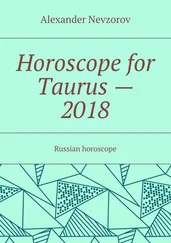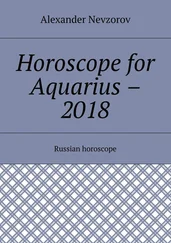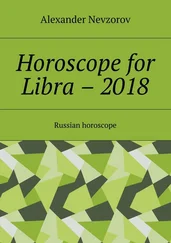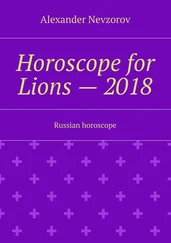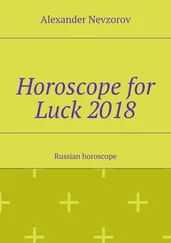These visits to the place of conspiracy were the last contacts I had with the Centre. I never saw Smirnov after that day in April when I at last got my documentation as Mueller complete. I lived for some time as Mueller in my little room in the Wisbyerstrasse. It was not uncomfortable there as it was on the top floor and comparatively undamaged and unlooted. The Russian soldiers principally confined their looting to the lower floors so the higher one was in any building the better. Life in the curious, twilight world of the defeated capital was not uninteresting but my experiences there have little bearing on this narrative and anyway enough has already been written about Germany in defeat.
The sun was shining on the ruins of Berlin when on August 2, 1947, I left the Russian sector and walked into the British Zone and freedom.
Now that it is all over and I am once again a private citizen in England, it is possible to look back and sum up these ten years of my life. I joined the International Brigade and fought in Spain partly because of a love of adventure and partly because I felt that the cause was right. I worked for the Red Army Intelligence Service from a love of adventure and partly because I was working against Fascism and the enemies of democracy. I left the service of the Russians because I realised that to continue working would be to work against freedom and for dictatorship.
I can look back on these ten years with no regrets. The fight in Spain failed because the enemies of the Republic were too strong and their friends too weak or too unwilling to realise that this was yet another step in the Nazi programme for world domination. The war against Fascism was successful because all the enemies of Fascism combined together in an all-out effort and my efforts with the Soviet spy ring in Switzerland contributed in some degree to the ultimate defeat of the Third Reich. With the war over and Fascism defeated and in ruins, it was obvious to me that a new danger to democracy had taken its place in the shape of Soviet Russia. The danger had been there all along but, with the defeat of Germany and Japan, Soviet Russia remained alone as the greatest threat to the peace of the world. As long as the Western democracies and Russia were fighting a common enemy, so long would Russia co-operate with the democracies and so long was it possible to justify working for Russia against the common enemy. As soon as that frail bond of a common purpose was shattered, then the Russian desire for "security," which bears a startling resemblance to what was called before the war "Nazi aggression," came to the fore and its sequel in eastern Europe is now history. To have continued after the war to act as a spy for Soviet Russia would have been to be a traitor to those principles for which I and many others fought, and many died, in Spain. When I went to Spain and during the war when I saw the magnificent way in which the Russians fought to save their Fatherland, it was possible still to believe in the ideas and ideals of Communism. After a period in Russia, and leisure to think back on the actions of Soviet diplomacy and politics in the past, it might have been possible to remain a theoretical Communist, but I found it quite impossible to believe in Communism as practised in Russia today.
The Nazis have been described, quite rightly so, and equally rightly held up to the execration of the world, as ruthless exponents of "Realpolitik" and "Machtpolitik." Russia has nothing to learn from Nazi Germany in this respect. The tactical methods of the Kremlin change with bewildering frequency and speed, the political sails trimmed to suit the prevailing breeze. The strategic aim remains steadily and unwaveringly the same. That aim has been as clearly described by Stalin as was the aim of National Socialism in Mein Kampf . The Comintern may be officially dead, but the ghost clothes itself, as soon as peace comes, in the flesh of the Cominform. The ultimate aim is still to spread Communism throughout the world. Such a spread, if successful, means in effect the spread of the power and control of Soviet Russia. It is only necessary to pick up a newspaper to see what that means: suppression of freedom of thought and speech; the power of the political police; purges; arrests and oppression. The picture is tragically familiar.
I remember during the course of my political instruction in Moscow hearing the Nazis being described as sentimentalists and thus totally unfitted to carry out their desire for world domination. As an example of this sentimentality I was told that in order to liquidate a few thousand Jews in Salonika they had to be transported halfway across Europe to Auschwitz as the Wehrmacht refused to carry out executions on the spot. My instructor was interesting on the subject of the Jews, and showed to the full his Russian realism. He explained that the report of the Duke of Wellington on the defeat of Napoleon in Russia could be equally applied to Hitler. The duke had pointed out that the failure of Napoleon to use the Jews as agents and go-betweens between his armies and the Russians had led to his failure to exploit the Russian territory that he had overrun. Only the Russian Jew was able to understand and manage the Russian peasant. Hitler had made a similar mistake in liquidating rather than using the Jewish population in the conquered Eastern territories. No horror was expressed at the ruthless extermination policy of the Nazis and the attendant horrors of the concentration camps and the gas chambers. It was merely coldly expressed as a statement of fact and as a proof of German stupidity.
It is not for me to speculate as to the future of relations between the West and Russia. I am neither a politician nor a crystal-gazer. It is also unnecessary for me to discourse at length on the merits or demerits of Communism in theory and in Russian practice. It is perhaps pertinent to point out, however, that I started my Civil War days believing that Communism might well provide a solution to the ills of the world and ended by severing all connection with the Party and with Russia and retiring to the "decadent democracy" of England. I could have remained in Russian service and might now be well established as an important agent in their network working against the West; that I did not and preferred the uncertainty of life in England is proof enough of my present feelings.
One thing I am perhaps qualified to sum up is the effectiveness and dangers of the Russian espionage service. It is obvious that as long as the policy of Russia and her satellites is opposed to the policies of the democracies so long will Russia attempt to discover the secrets of the West. It only remains to see how serious a danger this is.
Throughout my narrative I have shown both the failures and the successes of the Red Army Intelligence Service. The faults were many and manifest. The Centre were frequently foolish, frequently unco-operative, and frequently inefficient. They were often dilatory when speed was essential and rash when caution was the better course. In fact the rigidity of the control and the lack of imagination of the Centre might lead one to assume that the dangers cannot be great if the system is so bad. Such an assumption would be dangerous in the extreme, as there is a great deal on the credit side, though much of it is imponderable.
Firstly, the Russian spy system has a ready-made network on the ground in the shape of the national Communist Party. This organisation provides a recruiting ground for agents, a source of funds and supplies, and, in time of war, a ready-made resistance movement. It cannot be sufficiently emphasised- and all accounts of trials of Soviet spies and reports of Soviet espionage have clearly shown it- that the loyalty of a Party member lies primarily with the Party and secondarily with his country. It is impossible to have a better recruit for espionage. As a result he is prepared to take enormous risks, work long hours for little pay, and live, and if necessary die, for the ideals of the Party, which means, in effect, for Moscow. It is from this overriding loyalty to Party rather than to patriotism that the Russian spy system derives its strength.
Читать дальше




